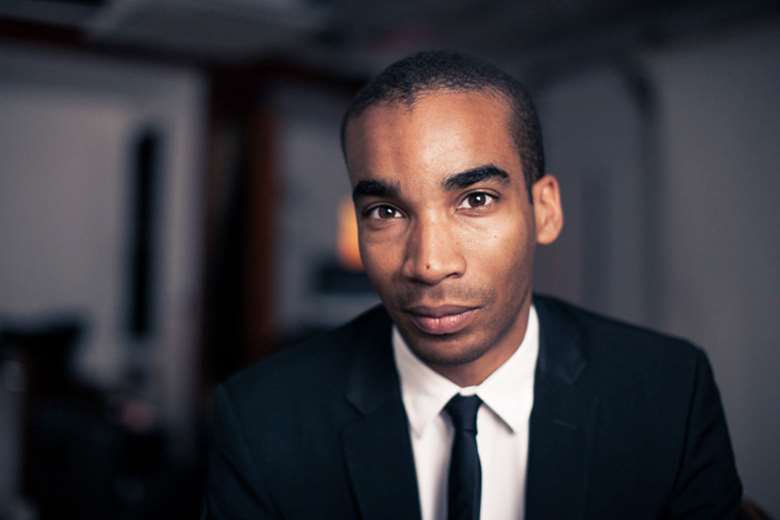Peter Edwards Trio score highly with live Body and Soul soundtrack
Wednesday, December 7, 2016
Black Star, the BFI's high-profile celebration of African-American and Black British cinema that has been running for the past few months, is given a major shot in the arm tonight.

The phenomenon of the classic movie plus live score has become increasingly popular over the last decade, but this screening at the National Film Theatre of one of the pivotal statements by the pioneering 'Negro' filmmaker Oscar Micheaux, set to a performance by a contemporary British jazz musician of West Indian heritage, Peter Edwards, is a fine example of the genre.
Sound and image are in symbiosis. Mood on screen and atmosphere in the auditorium are expertly matched. The essence of the story and the content of the characters are relayed by the skill of the composing and improvising. The trio of pianist Edwards, drummer Rod Youngs and double bassist Alex Davis form what is the scaled-down ensemble of the Nu Civilisation Orchestra, and play a set that vividly reinforces and enriches the 1925 silent movie. It has a cast headed by the iconic Paul Robeson, which is all the more interesting for his role against type as the dastardly 'faker' preacher Jenkins, an ex-con who preys on members of a naïve congregation in the Deep South, to the detriment of his virtuous brother. The portrayal of the 'evil twin' is gripping for the immense charisma Robeson exudes by way of an acting style that is mostly naturalistic, and Edwards plays a trump card with pieces that are subtle rather than excessively dramatic. His main vocabulary nestles between Ellingtonian nobility and a hearty New Orleans swing in which the crispness of Youngs' snare and Davis' concise quarter notes skillfully create the momentum to support the flow of the narrative.
The bustle of the church services, where Robeson opts for a more dynamic gestural repertoire, especially when he delivers the 'Dry bones in the valley' sermon, is met with an upbeat gospel groove that has a rousing charm that counterpoints the villainy slickly concealed under the outwardly righteous ways of the reverend. Similarly, a delicious detuned boogie, with piano chords toppling in and out of harmony while drums and bass drag in and out of time is a sharp reinforcement of the moments in which Jenkins succumbs to the perils of 'good liquor', staggering his way home in a line that is anything but straight.
While these parts of the score are notable it is the central theme, which is given a number of astute variations throughout the set, that really marks Edwards' growth as a composer. There is a Porgy and Bess-like resonance to it, a rechanneling of some of Gershwin's gift for deeply solemn minor melodies that feel so inherently vocal regardless of whether or not they are rendered by a group of singers or players.
Filmmaker Micheaux was a visionary in black cinema, the son of former slaves who broke new ground with his debut The Homesteader in 1919 and continued to boldly push the envelope on 'race films' for decades to come. Body and Soul is part of this historic contribution to black art that takes us right back to the pre-talkie era when musicians playing live to a film was commonplace. Edwards, as much as he is a jazz artist of today, proves an able incumbent of a role of this historical weight.
– Kevin Le Gendre